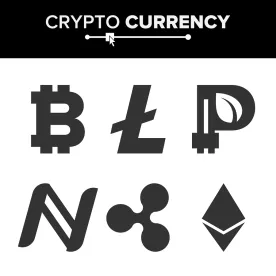Having looked comparatively at the approaches of certain authorities around the world to addressing and mitigating the risks associated with cryptocurrencies, our attentions now turn to the emerging position of regulators in the U.S., which is often considered the world’s second-largest cryptocurrency market. In the first two parts of this three-part post, we examined “cryptocompliance” in Asia, click here, and in Europe, click here.
U.S. Treasury Secretary comment on G20 involvement in adapting KYC obligations
In January of this year, Secretary of the U.S. Department of the Treasury, Steven Mnuchin, discussed tax reform, national debt, and cryptocurrencies at the Economic Club of Washington, a not-for-profit, non-partisan forum where global leaders can discuss economic issues. Notably, Secretary Mnuchin stated that the Treasury was “very focused on cybercurrencies,” specifically ensuring that “bad people cannot use these currencies to do bad things,” and generally protecting and educating customers. He pledged that the U.S. would be working closely with the G20 to help other nations develop know-your-customer (“KYC”) obligations for cryptocurrency activities.
U.S. Senate Committee testimony by SEC and CFTC Chairpersons; collaborative policing envisaged
Other American officials have also voiced concern regarding the vulnerability of digital currency to terrorist financing and money laundering. In February of this year, the U.S. Senate Committee on the Judiciary and the U.S. Senate Committee on Banking, Housing and Urban Affairs held hearings regarding beneficial ownership, customer due diligence, and the regulatory environment for cryptocurrency. The testimony emphasized the need for more rigorous oversight of virtual currency platforms. Jay Clayton, the Chair of the Securities and Exchange Commission (“SEC”), testified that “the currently applicable regulatory framework for cryptocurrency trading was not designed with trading of the type we are witnessing in mind.” Both he and Christopher Giancarlo, the Chair of the Commodity Futures Trading Commission (“CFTC”), expressed concern that the current state of regulation leaves gaps in protection for virtual currency traders and investors. Although market participants are already subject to the Bank Secrecy Act and AML regulations, Mr. Clayton warned that they “should exercise particular caution” to ensure “their cryptocurrency activities are not undermining their anti-money laundering and know-your-customer obligations.” Mr. Giancarlo also stated during this testimony that U.S. Treasury Secretary Mnuchin was organizing a virtual currency “task force,” comprising the SEC, CFTC, Treasury’s Financial Crimes Enforcement Network (FinCEN), and the Federal Reserve, which would be tasked with coordinating the various agencies’ “policing” of the cryptocurrency industry.
U.S. Attorney General creates Justice Department task force
Also in February of this year, United States Attorney General, Jeff Sessions, ordered the creation of a cybersecurity task force to study cybercriminality, including efforts to interfere with U.S. elections, the use of emerging technology to avoid or frustrate law enforcement, and the mass exploitation of computers and other digital devices to attack American citizens and businesses. Rod Rosenstein, the Deputy Attorney General, noted at the Financial Services Roundtable’s spring conference that many of these schemes “involve bitcoin and other cryptocurrencies that do not flow through the traditional financial system.” Mr. Rosenstein emphasized that the task force should develop a comprehensive strategy to protect consumers from abuse. The Task Force is due to issue a report to Mr. Sessions by the end of June 2018.
President sanctions Venezuelan cryptocurrency; OFAC issues related guidance
Believing that the Maduro regime was looking to leverage cryptocurrencies to evade U.S. sanctions against Venezuela, President Trump’s Executive Order 13827 prohibited transactions related to virtual currencies, coins, or tokens issued by, for, or on behalf of the Venezuelan government, as of March 19, 2018. Contemporaneously, the U.S. Treasury’s Office of Foreign Asset Control (“OFAC”) posted on its FAQ webpage (see questions 559 through 563) that it “may add digital currency addresses to the SDN List to alert the public of specific digital currency identifiers associated with a blocked person.” These actions demonstrate the U.S. government’s willingness to look beyond traditional financial transactions and to scrutinize the emerging use of digital currencies, including those issued by foreign governments, for sanctions violations.
U.S. prosecutes Canadian cross border cryptocrime
Also in March of this year, a U.S. Attorney’s Office asserted jurisdiction over an online cryptocurrency payment processor, Payza.com, and the company’s Canadian founders, Fehran and Firoz Patel. The defendants were charged with operating an unlicensed financial services business that processed more than USD 250 million of cryptocurrency transactions, and laundered illegal proceeds, through U.S. bank accounts. Fehran Patel has been arrested; his brother Firoz remains at large. If convicted, each faces a prison sentence of more than 25 years.
Additional Considerations
The international community generally appears to have recognized and accepted that cryptocurrency and, more significantly, its enabling blockchain technology are here to stay. Cryptocurrencies are fundamentally reshaping global financial connectedness, while the true benefits of blockchain technology are yet to be realized but will no doubt sustain its relevance for generations to come. However, rewards come hand-in-hand with risks, benefits hand-in-hand with vulnerabilities, hence the need for substantive regulation. The ultimate objective of “cryptocompliance?” The mitigation of security, consumer protection and financial crime concerns via the implementation of international best practice anti-money laundering and terrorist financing standards, as they apply to the still-to-be-determined nuances of digital assets such as cryptocurrency.





 />i
/>i

